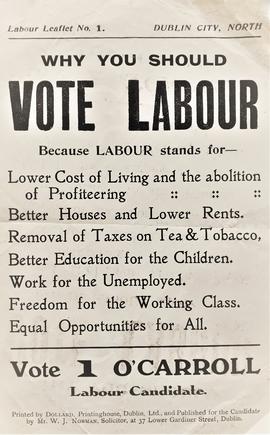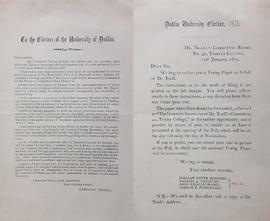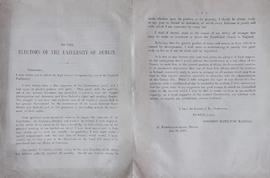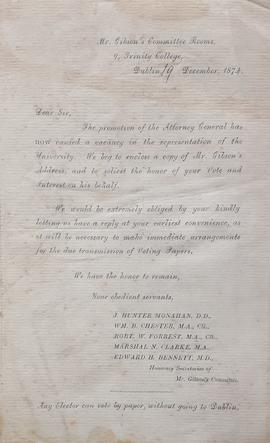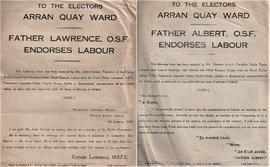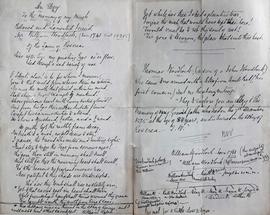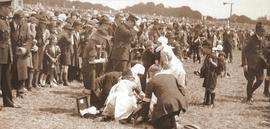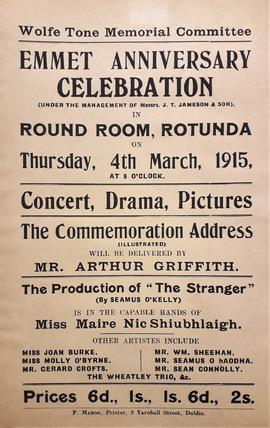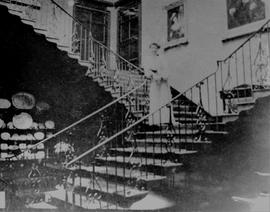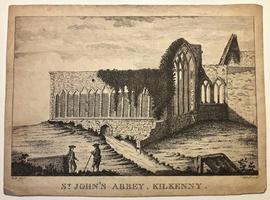A flier for a patriotic concert and celebration to commemorate the anniversary of the birth of Robert Emmet (1778-1803), held in the Rotunda Rooms in Dublin on 4 March 1915. Most of the participants in the concert were active in cultural revivalist circles and in revolutionary politics, and many were involved in the 1916 Rising.
The group includes Arthur Griffith (1871-1922), a newspaper editor and nationalist politician who founded Sinn Féin and was later a co-signatory of the Anglo-Irish Treaty (1921). He served as the president of Dáil Éireann from January 1922 until his death in August of that year. Seamus (or Seumas) O’Kelly (c.1875-1918) was a Galway-born republican, journalist, playwright, and later editor of the ‘Nationality’ newspaper founded by Arthur Griffith. Máire Nic Shiubhlaigh (1883-1958) was a well-known actress and republican activist. She was a founder-member of the Abbey Theatre and was the leading lady on its opening night in 1904, when she played the title role in W.B. Yeats’s ‘Cathleen Ni Houlihan’. As a member of Cumann na mBan, she took part in the 1916 Rising, spending most of her time in the ground-floor rooms of Jacob’s factory, where she took charge of the garrison’s female volunteers. Seán Connolly was a republican, socialist and Abbey Theatre actor who also took part in the Easter Rising. He was a captain in the Irish Citizen Army and was the first rebel to be killed (on 24 April 1916 at Dublin Castle). Joan Burke was a Feis Ceoil gold medallist and a celebrated opera singer (contralto). She was a sister of W.T. Cosgrave, a leading rebel participant in the Easter Rising and later the Irish Free State’s first head of government (from 1922 to 1932). Séamus Ó hAodha (1881-1943) was an operatic singer (tenor), trade unionist and revolutionary. He gave the first ever performance of ‘The Soldier’s Song’ by Peadar Kearney (‘Amhrán na bhFiann’, the Irish-language translation, is the national anthem of Ireland) in Clontarf town hall in Dublin in December 1914. He joined the Irish Volunteers and was involved in the Howth gun-running of 1914. He fought at Jacob’s factory in the 1916 Rising. He was later appointed as the first announcer on 2RN, the first radio broadcasting station in the Irish Free State, which opened in January 1926. Gerard Crofts (1888-1934) was a poet and operatic singer (tenor). He joined the Irish Volunteers in 1914 and was personally acquainted with Seán MacDermott, Éamonn Ceannt and Constance Markievicz.

